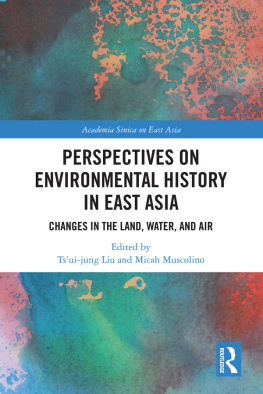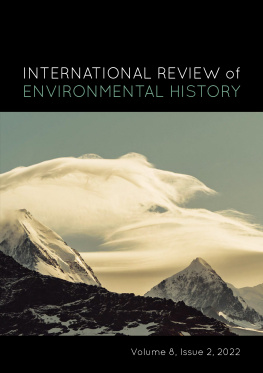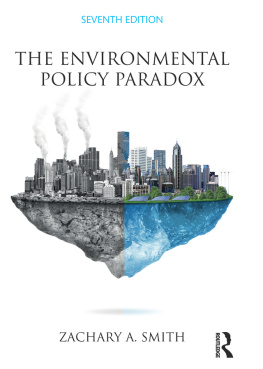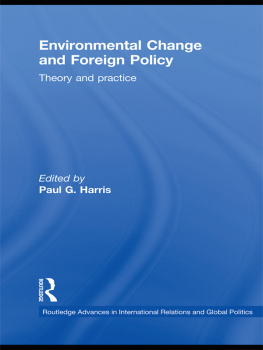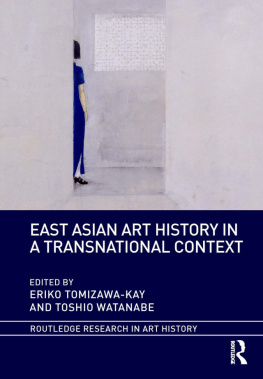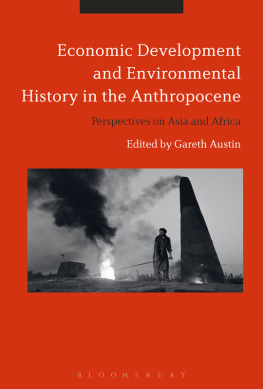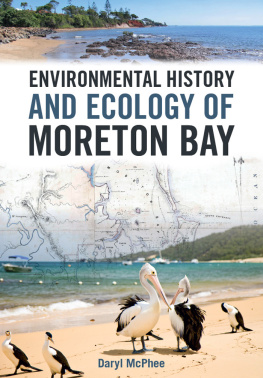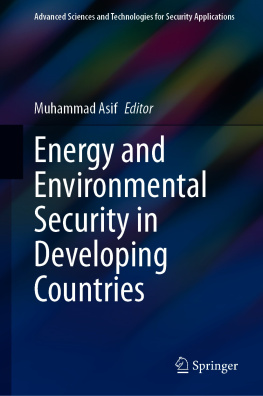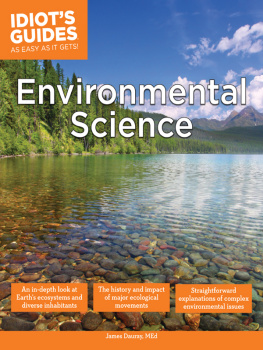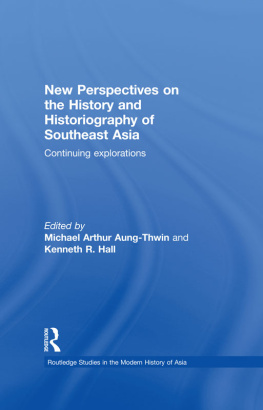Perspectives on Environmental History in East Asia
This edited volume engages with some of the most dynamic themes in current research on East Asian environmental history, including agricultural science, war and the environment, imperial forestry, oceanic history, and the history of energy.
Chapters in this book supply an overview of environmental history as a rapidly expanding field, continuing to generate valuable insights into the mutually constitutive relationship between human societies and the biophysical environment. The book is divided into three parts. consists of two chapters, discussing the impact of new technologies on air quality, in addition to the history of energy in East Asia, which has emerged as an important area of inquiry at the intersection between both environmental history and the history of science and technology.
Perspectives on Environmental History in East Asia: Changes in the Land, Water, and Air will appeal to students and scholars of East Asian studies, environmental history, and environmental sciences.
Tsui-jung Liu is Adjunct Research Fellow at the Institute of Taiwan History, Academia Sinica. She gained her B.A. and M.A. from National Taiwan University and PhD from Harvard University. She was elected Academician of Academia Sinica in 1996. She served as Vice President of Academia Sinica between 2003 and 2009.
Micah Muscolino is Professor and Paul G. Pickowicz Endowed Chair in Modern Chinese History at the University of California, San Diego. He is the author of Fishing Wars and Environmental Change in Late Imperial and Modern China and The Ecology of War in China: Henan Province, the Yellow River, and Beyond, 19381950. In addition to these books, he has published articles on Chinas place in global environmental history, maritime connections between Mainland China and Taiwan, energy history, and the history of territorial disputes in the South China Sea. His current research focuses on the history of soil and water conservation in Northwest Chinas Loess Plateau region from the 1940s to the 1970s.
Academia Sinica on East Asia
Series Editor: Dr. Chin-Shing Huang, Vice-President, Academia Sinica, Taiwan
Published in association with Academia Sinica, Taiwan
Academia Sinica was founded in 1928 in Nanjing, China. Over the next decade, ten institutes were founded, including three institutes in the humanities and social sciences. Researchers continued their work through the War of Resistance against Japan (19361945) and the civil war (19451949), and in 1948 Academia Sinica followed the government of the Republic of China to Taiwan. Only two of its institutes, the Institute of History and Philology and the Institute of Mathematics, were initially reestablished in Taiwan. However, over the following years Academia Sinica developed into a world-class research institution with 31 institutes and research centers divided among three divisions: Mathematics and Physical Sciences, Life Sciences, and Humanities and Social Sciences.
The Division of Humanities and Social Sciences now consists of eleven institutes and a research center. Its scholars conduct research in the areas of archeology, history, literature, linguistics, philology, philosophy, anthropology, economics, sociology, political science, and law, as well as conducting interdisciplinary research.
The publication series Academia Sinica on East Asia features monographs by scholars in the humanities and social sciences at Academia Sinica.
Local Realities and Environmental Changes in the History of East Asia
Edited by Tsui-jung Liu
Landscape Change and Resource Utilization in East Asia
Perspectives from Environmental History
Edited by Tsui-jung Liu, Andrea Janku and David Pietz
Perspectives on Environmental History in East Asia
Changes in the Land, Water, and Air
Edited by Tsui-jung Liu and Micah Muscolino
For more information about this series, please visit: https://www.routledge.com/Academia-Sinica-on-East-Asia/book-series/AS00
First published 2021
by Routledge
2 Park Square, Milton Park, Abingdon, Oxon OX14 4RN
and by Routledge
52 Vanderbilt Avenue, New York, NY 10017
Routledge is an imprint of the Taylor & Francis Group, an informa business
2021 selection and editorial matter, Tsui-jung Liu and Micah Muscolino; individual chapters, the contributors
The right of Tsui-jung Liu and Micah Muscolino to be identified as the authors of the editorial material, and of the authors for their individual chapters, has been asserted in accordance with sections 77 and 78 of the Copyright, Designs and Patents Act 1988.
All rights reserved. No part of this book may be reprinted or reproduced or utilised in any form or by any electronic, mechanical, or other means, now known or hereafter invented, including photocopying and recording, or in any information storage or retrieval system, without permission in writing from the publishers.
Trademark notice: Product or corporate names may be trademarks or registered trademarks, and are used only for identification and explanation without intent to infringe.
British Library Cataloguing-in-Publication Data
A catalogue record for this book is available from the British Library
Library of Congress Cataloging-in-Publication Data
A catalog record for this book has been requested
ISBN: 978-0-367-47386-0 (hbk)
ISBN: 978-1-003-08174-6 (ebk)
Typeset in Times New Roman
by Apex CoVantage, LLC
Contents
TSUI-JUNG LIU AND MICAH MUSCOLINO
PART I
Land use
1 The tale of treasure grass: sweet clovers introduction and extension in China, 19421961
GUANNAN GAO AND MICAH MUSCOLINO
2 Un-occupied spaces: demilitarization and land use in the Kanto Plain
ADAM TOMPKINS
3 Devastation and indigenous people in colonial forestry: representations of Taiwanese and Korean vegetation change in the Japanese empire
TAISAKU KOMEIE
PART II
Cropping and fishing
4 Irrigation and sequence in agricultural time in Shanxi since the Ming dynasty
CHI-YING CHANG
5 The importance of local customs to fisheries in early modern Japanese fishing villages
SHINGO NAKAMURA
6 Rationalizing the ocean: low-level radiation and salmon farming in the North Pacific
KAYO NISHI
7 Vibrant matter(s): fish and fishing histories in North Korea
ROBERT WINSTANLEY-CHESTERS
8 The EU food reference laboratory and its lessons for Taiwan and China
DER-CHIN HORNG
PART III
Air quality and environmental risk
9 Lessons from the Sixth Naphtha Cracker Complex of Mailiao, Taiwan: environmental disputes and health risks
HURNG-JYUHN WANG
10 Energy saving practices and emissions reduction in coastal Southeast China and Taiwan
TSUI-JUNG LIU
- Part I Land use
- 1 The tale of treasure grass: sweet clovers introduction and extension in China, 19421961
- 2 Un-occupied spaces: demilitarization and land use in the Kanto Plain
- 3 Devastation and indigenous people in colonial forestry: representations of Taiwanese and Korean vegetation change in the Japanese empire
- Part II Cropping and fishing
- 4 Irrigation and sequence in agricultural time in Shanxi since the Ming dynasty

